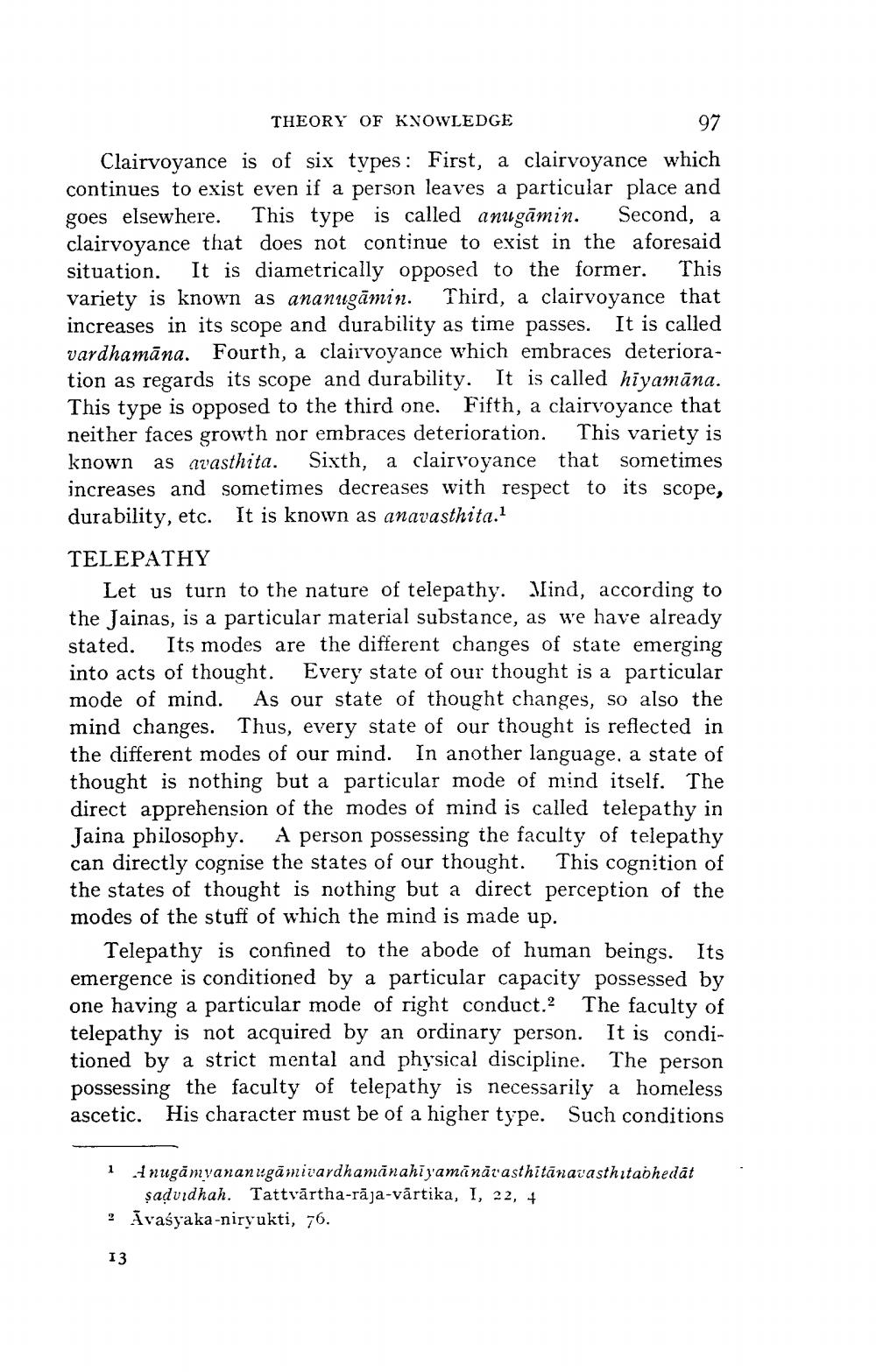________________
THEORY OF KNOWLEDGE
97
Clairvoyance is of six types: First, a clairvoyance which continues to exist even if a person leaves a particular place and goes elsewhere. This type is called anugāmin. Second, a clairvoyance that does not continue to exist in the aforesaid situation. It is diametrically opposed to the former. This variety is known as ananugāmin. Third, a clairvoyance that increases in its scope and durability as time passes. It is called vardhamāna. Fourth, a clairvoyance which embraces deterioration as regards its scope and durability. It is called hiyamāna. This type is opposed to the third one. Fifth, a clairvoyance that neither faces growth nor embraces deterioration. This variety is known as avasthita. Sixth, a clairvoyance that sometimes increases and sometimes decreases with respect to its scope, durability, etc. It is known as anavasthita.
TELEPATHY
Let us turn to the nature of telepathy. Jind, according to the Jainas, is a particular material substance, as we have already stated. Its modes are the different changes of state emerging into acts of thought. Every state of our thought is a particular mode of mind. As our state of thought changes, so also the mind changes. Thus, every state of our thought is reflected in the different modes of our mind. In another language, a state of thought is nothing but a particular mode of mind itself. The direct apprehension of the modes of mind is called telepathy in Jaina philosophy. A person possessing the faculty of telepathy can directly cognise the states of our thought. This cognition of the states of thought is nothing but a direct perception of the modes of the stuff of which the mind is made up.
Telepathy is confined to the abode of human beings. Its emergence is conditioned by a particular capacity possessed by one having a particular mode of right conduct. The faculty of telepathy is not acquired by an ordinary person. It is conditioned by a strict mental and physical discipline. The person possessing the faculty of telepathy is necessarily a homeless ascetic. His character must be of a higher type. Such conditions
1 Anugāmyanan ugāmivardhamanahiyamānārasthitānavasthitavhedāt
saờvidhah. Tattvārtha-rāja-vārtika, I, 22, + ? Āvaśyaka-niryukti, 76.




